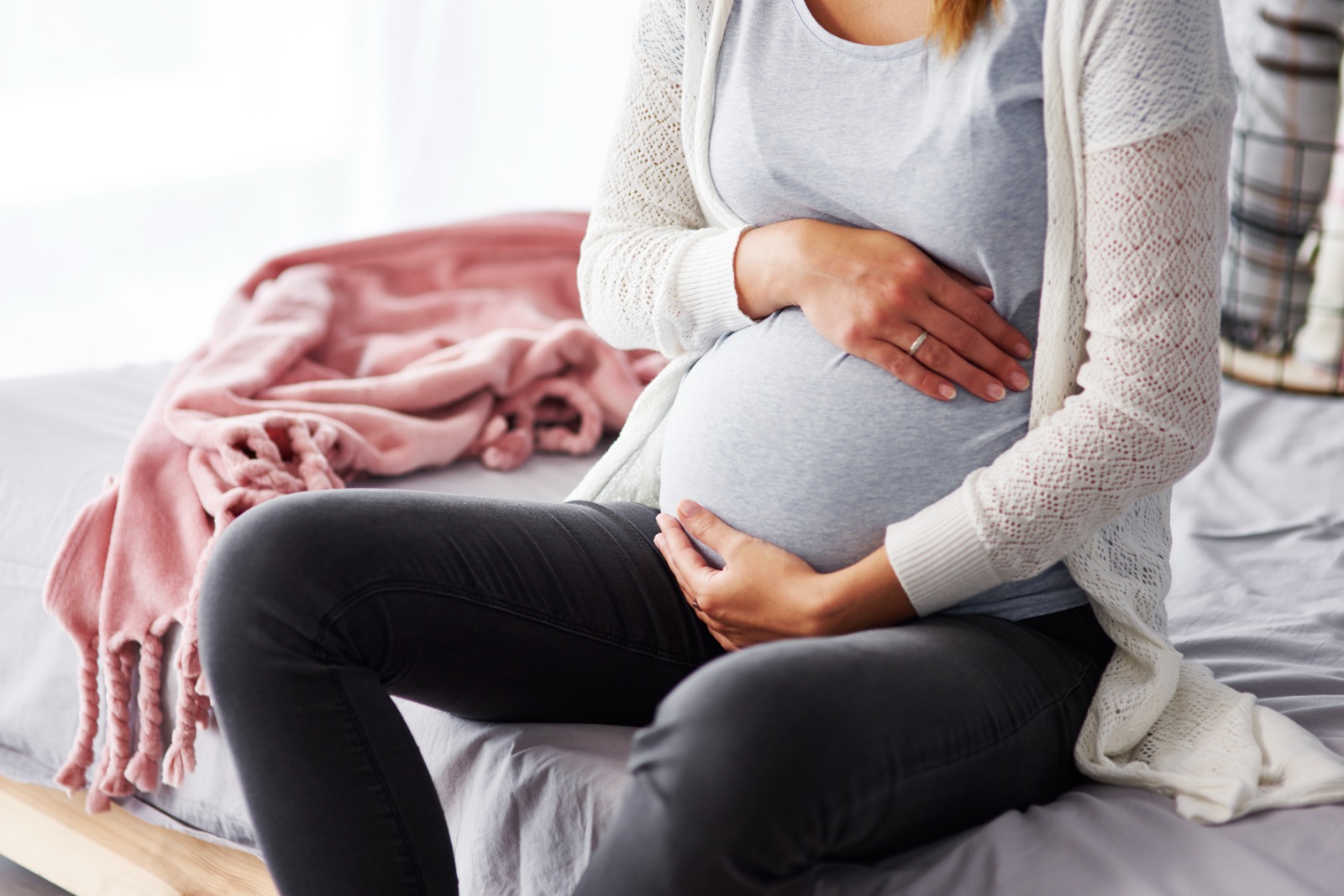Unsure if you’re pregnant? Take our « Am I Pregnant Quiz » and explore various testing methods, early symptoms, and what to do next. Get informed with our comprehensive guide!
Pregnancy can evoke a whirlwind of emotions ranging from excitement and joy to anxiety and uncertainty. If you suspect you might be pregnant, it’s natural to have many questions. This guide is designed to help you navigate the early signs of pregnancy, understand the various testing methods available, and provide a framework for interpreting results. Additionally, we will include an “Am I Pregnant Quiz” that will help you assess your likelihood of being pregnant.
Section 1: Understanding Pregnancy
What is Pregnancy?
Pregnancy is a complex biological process that begins with the fertilization of an egg by a sperm, leading to the formation of a zygote. This zygote travels down the fallopian tube and implants itself into the uterine lining, where it develops into an embryo and eventually a fetus. Pregnancy typically lasts about 40 weeks and is divided into three trimesters:
- First Trimester (Weeks 1-12): This is when most of the significant developments occur, including the formation of major organs and structures.
- Second Trimester (Weeks 13-26): During this period, the fetus continues to grow, and many women start to feel movement.
- Third Trimester (Weeks 27-40): The fetus grows rapidly in size and prepares for birth.
Early Signs of Pregnancy

Understanding early signs of pregnancy can provide important clues about your reproductive health. Common early symptoms include:
- Missed Period: One of the most significant indicators of pregnancy. If your menstrual cycle is regular and you miss a period, it’s a strong sign that you might be pregnant.
- Nausea: Often referred to as « morning sickness, » nausea can occur at any time of the day and may begin around the sixth week of pregnancy.
- Breast Changes: Women often experience swelling, tenderness, or changes in sensitivity in their breasts due to hormonal fluctuations.
- Fatigue: Many women report feeling unusually tired during the early stages of pregnancy. This can be attributed to hormonal changes and the body’s increased energy demands.
- Frequent Urination: Increased blood flow to the kidneys during pregnancy can lead to more frequent urination.
For a more comprehensive list of symptoms, check out Early Signs of Pregnancy.
Section 2: The Am I Pregnant Quiz
Introduction to the Quiz
To help you gauge your chances of being pregnant, we’ve created a straightforward quiz. Answer the following questions honestly to gain a better understanding of your situation:
- Have you missed your period?
- Yes
- No
- Are you experiencing nausea or vomiting?
- Yes
- No
- Have your breasts changed in size or tenderness?
- Yes
- No
- Are you feeling more fatigued than usual?
- Yes
- No
- Are you experiencing increased urination?
- Yes
- No
- Have you recently experienced any unusual cravings or aversions to food?
- Yes
- No
- Have you taken a pregnancy test, and if so, what was the result?
- Positive
- Negative
- I haven’t tested yet.
Section 3: Interpreting Your Results
What Your Quiz Results Mean
- Mostly Yes: If you answered « Yes » to most questions, it could indicate that you are pregnant. It’s advisable to take a home pregnancy test or consult with a healthcare provider for confirmation.
- Mostly No: If you answered « No » to most questions, you may not be pregnant. However, if you still suspect otherwise, consider taking a pregnancy test or consulting a healthcare professional.
Section 4: Pregnancy Testing Methods
Home Pregnancy Tests
Home pregnancy tests (HPTs) are a popular and convenient option for checking for pregnancy. Here’s how they work:
- How to Use: Home pregnancy tests typically involve either urinating on a test strip or dipping a test stick into a urine sample. Most tests are designed to be easy to use, requiring minimal instructions.
- When to Test: For the most accurate results, it’s best to wait until the day of your expected period or a week after for earlier testing. Testing too early can lead to false negatives due to low levels of the pregnancy hormone hCG (human chorionic gonadotropin) in your urine.
- Reading the Results: Most tests display results in the form of lines. Generally, one line indicates a negative result, while two lines indicate a positive result. Some tests may also show a digital readout of « Pregnant » or « Not Pregnant. »
For detailed guidance on home tests, visit Home Pregnancy Tests Explained.
Blood Tests
Blood tests are conducted in a clinical setting and can confirm pregnancy earlier than home tests. There are two primary types:
- Qualitative hCG Test: This test checks for the presence of hCG hormone, which indicates pregnancy. It can typically detect pregnancy about a week after implantation.
- Quantitative hCG Test: This more detailed test measures the exact amount of hCG in the blood, providing additional information about the pregnancy, including how far along you might be.
Blood tests are more reliable than home tests and can detect pregnancy earlier, but they require a visit to a healthcare provider.
Section 5: When to Consult a Healthcare Provider
If your home pregnancy test is positive, it’s essential to schedule an appointment with a healthcare provider. They can confirm the pregnancy with a blood test and begin discussing prenatal care options.
What to Expect at Your Appointment
- Blood Test: The healthcare provider will likely perform a blood test to confirm your pregnancy.
- Ultrasound: An ultrasound may be scheduled to check the health and development of the embryo. This can also confirm the pregnancy’s location (i.e., whether it is intrauterine).
- Discussing Options: Depending on your situation, your provider will discuss your next steps, including prenatal care, lifestyle changes, and any questions you may have about the pregnancy.
Section 6: What to Do If You’re Pregnant
Early Pregnancy Care
Once you confirm your pregnancy, consider the following steps to ensure a healthy pregnancy:
- Start Prenatal Vitamins: Begin taking prenatal vitamins that contain folic acid, iron, and other essential nutrients to support fetal development. Folic acid is particularly important as it helps prevent neural tube defects. For more on prenatal vitamins, visit Understanding Prenatal Vitamins.
- Schedule Regular Check-ups: Regular visits with your healthcare provider will monitor your health and the baby’s development. These check-ups are vital for detecting any potential issues early.
- Healthy Lifestyle: Focus on a balanced diet rich in fruits, vegetables, whole grains, and lean proteins. Regular exercise, as advised by your healthcare provider, can help maintain a healthy weight and support overall well-being. Avoid harmful substances like alcohol, tobacco, and certain medications.
Section 7: Common Myths About Pregnancy
Myth 1: You Can’t Get Pregnant During Your Period
Many believe that pregnancy can’t occur during menstruation. While it’s less likely due to lower fertility levels, sperm can survive in the female reproductive tract for up to five days. If you have unprotected sex towards the end of your period and ovulate shortly after, conception is possible.
Myth 2: Pregnancy Tests Are Always Accurate
While home pregnancy tests are generally reliable, they can produce false negatives, especially if taken too early. If you suspect pregnancy but test negative, wait a few days and test again. Always read the instructions carefully and ensure the test is within its expiration date for best results.
Myth 3: Stress Can Delay Your Period
Stress is a common factor affecting the menstrual cycle. High levels of stress can lead to hormonal imbalances that may result in delayed or missed periods. Practicing stress management techniques such as yoga, meditation, and deep-breathing exercises can be beneficial.
Section 8: Conclusion
Determining whether you are pregnant involves understanding your body, recognizing early symptoms, and utilizing available testing methods. If you suspect pregnancy, consider taking the “Am I Pregnant Quiz” and follow up with appropriate testing. Whether the result is positive or negative, support and guidance are available to help you navigate your next steps.
Further Reading and Resources
For more information on pregnancy and related topics, check out these resources:
